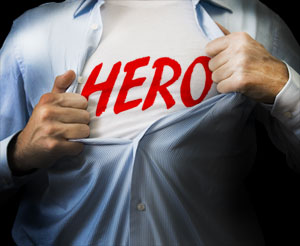You might have never thought of this, but we can all have the chance to be called heroes in our own way. Thanks to the incredible progresses of our days it can be actually quite easy to help save someone’s life, make a real difference – the only problem being the lack of information about how to be useful to those in need.

How?
So let me talk to you about the possibility of donating bone marrow (BM).
I joined the Italian data bank of eligible donors (the actual registry of BM donors is worldwide, there are seriously a lot of people registered out there) a few years back because it seemed like a decent enough thing to do, so why not? I had the luck of being talked to about the topic when I was still in high school because of a specific campaign that was being run in my city. I was terrified of needles back then but I thought that if all I needed to do to make a good deed was giving a tiny sample of blood, I could just deal with it. I’m fully aware needles can be a real phobia for someone, but it’s also true that most of us can power through this minor discomfort without it being too traumatic.
Sadly in the moment of the registration, at least in my case, they didn’t give out that much information about what would actually happen if you were found to be a possible match for someone. So this is what I’m trying to do today: fill in some gaps, in a way that can be easily understood and actually useful and practical.
Why would you become a donor?
Sadly, although the discoveries and new solutions found in medicine in the last decades have been dumbfounding and saved countless lives, we are still very far away from having magical and easy cures to some of the nastiest diseases out there.
Haematology is the part of medicine which deals with blood sicknesses, going from the more famous Leukaemia to less known but still deadly illnesses like Lymphomas, Myelomas and Aplastic Anaemias (there are countless kinds, these are just a couple of examples). All these evils affect the bone marrow, which is a very important element of our body (partially liquid and partially spongy) present in our main and biggest bones, particularly the spinal cord and the hips. Why is it so vital? Because it produces all the good and useful stuff that can be found in our blood – red and white blood cells, platelets, things that are very much necessary for our survival.
What happens then if your BM gets prevented from doing its job for whatever reason? You guessed that right – nothing good. While sometimes and for some diseases you can heal with medicines (usually chemotherapies), for others the only chance is getting a brand new bone marrow – a transplant (BMT). It’s literally a life or death situation.
First step!
If you want to be a BM donor, what you have to do is find a hospital that has a register and fill out some boring papers about yourself and your family’s medical history (plus contact information of course, obviously everything is very strictly confidential). You have to give a really little sample of blood (sometimes even just a tampon from your mouth to start!), like when you go to the doctor for a blood count.
You have to be at least 18 and not older than 45 to register (though it’s another matter if you ever get asked to donate for a family member) and weigh at least 45-50 kilos (these rules might vary slightly in each country, but this should give you a pretty accurate idea).
I might be a match!
What happens after? You might get called to donate. The possibilities of you being a match are very, very low and about 1 registered person out of 12 gets called. And if you do get called, you still might not turn out to be a perfect match! (Further blood tests will be needed to clarify that).
Let’s now say you get called to donate. You are a match! Someone needs you to save their life! Your life, no matter the fact that you have to be 100% healthy, is always, always put first. Don’t ever be afraid that someone will ever let you undertake useless risks. The donor is the privileged part – you’re trying to do something good, it’s only fair that your safety is put first.
There are two ways to donate BM. They might request a specific way, but it’s still your choice which method you decide to choose.
Option 1 – the easiest, 100% painless, just maybe slightly annoying, way: you have to be hospitalized for a few days (at zero expenses for you! You are a hero and heroes don’t pay, obviously) and in those days they give you little injections that basically separate the stamina cells in your blood from all the other cool stuff you need and keep. After these days you get one needle stuck in one arm that sucks your blood, filtrates the stamina cells through a cool machine, and everything else gets put in your other arm through another needle. I won’t tell you lies, it’s a slow process, but mostly just because it can get boring.
Option 2 – shorter but could be slightly painful, though you are asleep through it all: they get your BM directly from your bones (again, hips and back), so what they do is put you under total anaesthesia and draw (with slightly bigger needles than the ones used for blood tests, but it’s not like you ever even see them anyway) directly enough of your actual BM to donate (the liquid part of it). You might have a bit of a sore back for a few days afterwards, but it’s kind of like you had a fall and got a bruise from it, so even in this case nothing too harsh to go through.
Note: it’s true that pain tolerance is subjective, but I can promise this is the general response.
…This is it?
Done that? You are free to go! There goes your bit of Heaven if you believe in such things, or alternatively you can wear your “I’m a hero” banner proudly. You have made a difference. You have saved a life – feel good yet? And it was literally that easy!
Donating is very important. I know what I’m talking about – if I’ll be alive a year from now, it’s going to be thanks to my very own personal hero, whose BM has given me a chance to survive. Heroes exist, please consider being one of them.
One last thing worth mentioning…
The last thing I’ll remark is that your privacy is fully respected and therefore, even though norms change basically in every country, discretion is very important so all that we (who are donated to) are told are the sex and nationality of the donor (if that). I believe that in case you and your receiver both want to get in touch, there are both anonymous and non-anonymous ways to do so, but it will have to be a mutual choice.
“To the world you may be one person, but to one person you may be the world.” – Dr. Seuss

After receiving bone marrow from my brother to save my life, both of my children registered with Be The Match. Three months later, my son received an email saying he was a potential match. He went through the follow up paperwork, blood work and physical, and was determined to be the perfect match for a man in Italy (we’re in California). He donated to the 65-year-old and we’ve received word that he’s doing well. Full circle. It’s a wonderful thing to be able to save a life, and now we have two super heroes in our family 🙂 Everyone should register!!!
LikeLiked by 1 person
I was registered as a donor but I guess destiny had other plans for me! Forever grateful to my donor from Israel. There really should be more info out there on being donors… Congrats on your kids! Real heroes!!!
LikeLike